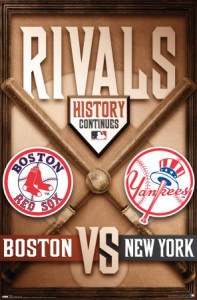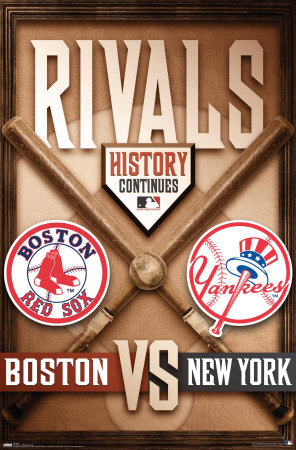
Never lie to others. Listen to your parents. Hate the New York Yankees.
Growing up in the Marks’ household, those were the golden rules. Most parents at least try to instill some sense of right and wrong into their children, which justifies the first two; good job Mom and Dad.
As for the third, it’s all about a rivalry.
My grandfather always loved the Boston Red Sox. He was born in 1900, less than a year before the Red Sox formed, so as a child, he naturally fell in love with his hometown team. With each year that passed and each championship title the Red Sox won, my grandfather’s emotional tie to the team grew stronger and more intense.
That passion, that die-hard love of the Boston Red Sox has since been passed down through the generations, finding a home first in my father and now in me. Now, all that makes sense, but what I could never figure out was why I was taught to hate the Yankees.
The bad blood truly began in 1920 when Babe Ruth, arguably the greatest baseball player of all time, was sold from the Red Sox to the Yankees. After the deal was made, Boston went into one of the longest championship droughts of all time, failing to win another title until 2004, over 80 years later. In the meantime, New York went on to become the most successful franchise in professional baseball, winning 26 championships between 1920 and 2000.
While Boston’s title dreams wilted, something else began to grow: a Yankees-Red Sox rivalry.
Sox fans blamed the Yankees for their team’s failure and over time, came to despise them. Players hated each other, but more interestingly, fans hated each other.
Jeremy Liles, junior, recognized that rivalries have the ability to manipulate fans of both teams. “Rivalries are naturally going to affect teams, and as a result, teams affect fans,” said Liles. “The thing with rivalries is that people eventually stop hating the other team and start hating other people.”
Unfortunately, that’s true. Fans tend to lose sight of the source of their frustrations and instead develop hatreds of other people. I hate to admit, but whenever I learn someone supports the Yankees, I judge them more harshly and in a more condescending manner than I would other strangers.
However, rivalries aren’t all bad; Robbie Cushman, freshman, explained how rivalries can help to strengthen relationships with family and friends. Said Cushman, “I’m a Chicago Bears fan, so whenever they play the Packers or the Lions, I get together with my family for the game. We just sit around, watch the game, and talk to each other, which is nice, but it wouldn’t happen if we didn’t have that rivalry in common.”
Liles admitted that participating in rivalries may have social benefits. “My friends and I root for different teams, so we tease each other and make jokes about who everybody goes for. It’s a good conversation starter because we know not to take it too seriously.”
Rivalries are bred in tradition, strengthen through familiarity and evolve with tremendous yet evenly matched competition. The reason we find them so enticing is because all of those aspects come together to tell a story, one in which we are only waiting to discover the next piece.

Leave a Reply